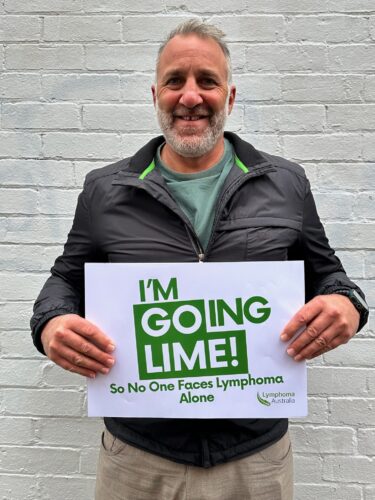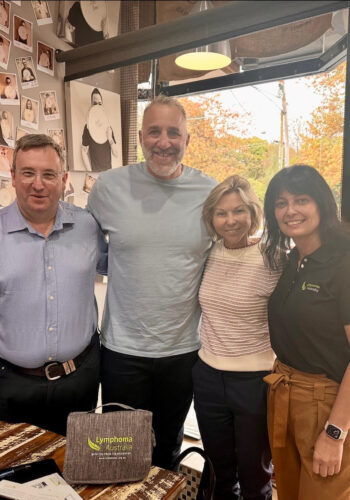
Diagnosis and the Road to Treatment
In the middle of 2024, I started experiencing pain in the middle of my back while I was sleeping. Concerned, I wen
t to see my doctor, who suggested I undergo some tests – blood work, an ultrasound, and a CT scan. From those results, the lymphoma was discovered.
I was then referred to oncologist Dr Allan Zimet in Richmond, who explained the next steps to me clearly. It was, of course, a confronting time, but having that guidance gave me direction.
Living with Follicular Lymphoma
I was diagnosed with Follicular Lymphoma early 2024 and am now in remission. However, I am continuing immunotherapy until October 2026.
Before treatment, the main symptom I noticed was back pain. During treatment, I experienced tiredness, fatigue, and some weight gain. Thankfully, I did not face issues with accessing treatment, and everything was straightforward in terms of care.
Challenges Along the Way

For me, the biggest challenge was physical. The fatigue and tiredness were draining and hard to push through at times. On the other hand, I was fortunate not to face difficulties with accessing support.
Work was incredibly understanding throughout. They gave me the opportunity not to worry about leave or finances, which was a huge relief. That support allowed me to focus on my health without the added stress.
Connection to Lymphoma Australia
I first heard about Lymphoma Australia through Gavin Crosisca, a former Collingwood AFL player. I haven’t accessed their services myself yet, but just knowing there’s an organisation dedicated to supporting people with lymphoma is really reassuring. I wanted to get involved as an ambassador because, for me, it’s about harnessing the power of sport, community, and shared experiences to raise awareness, start important conversations, and make sure no one faces lymphoma alone.
Words of Advice
If I could give any advice to someone newly diagnosed with lymphoma, it would be this: Be positive. The mind is a powerful tool that controls you, and creating your own positivity can truly shape your journey.